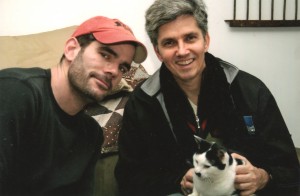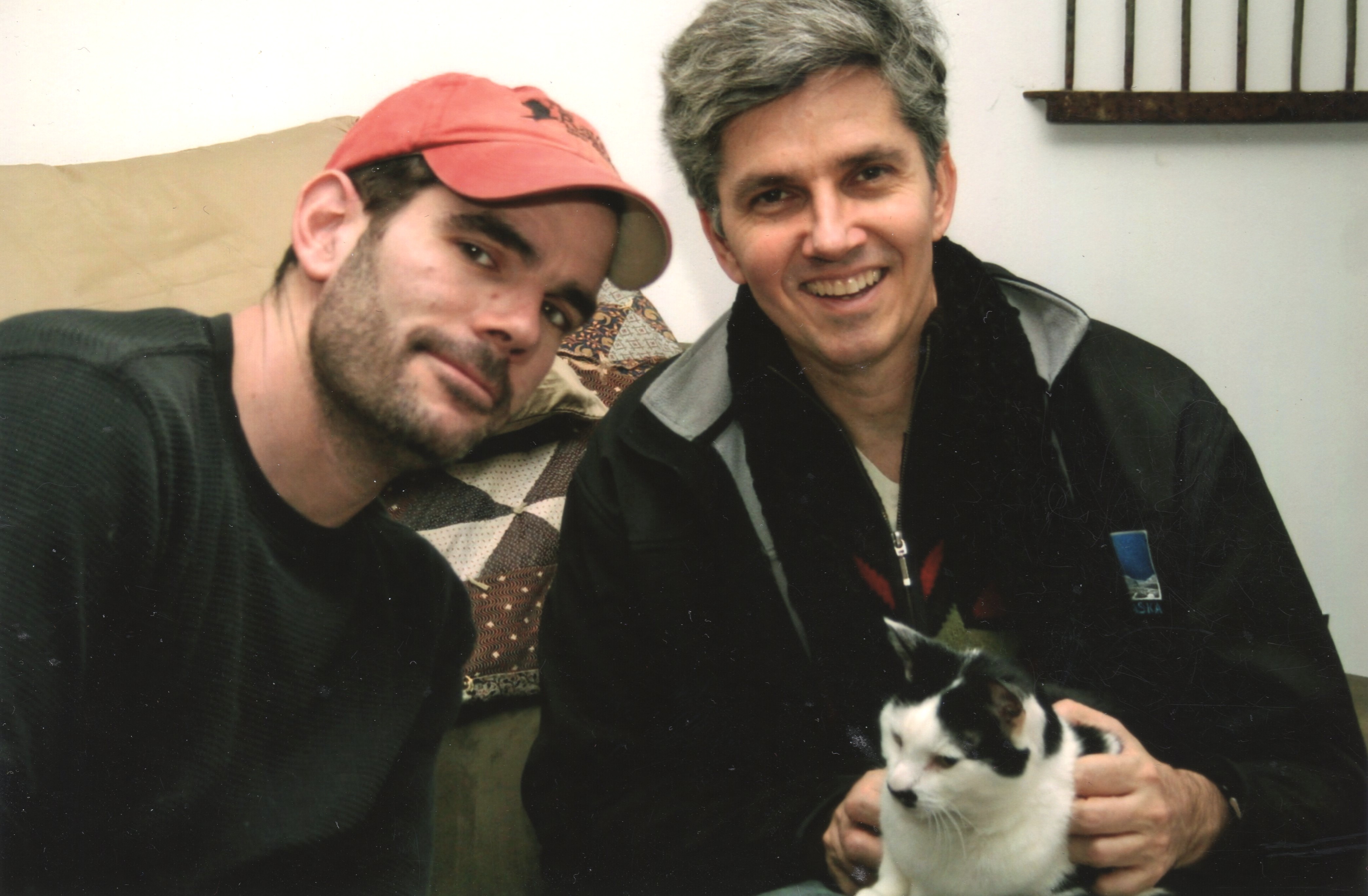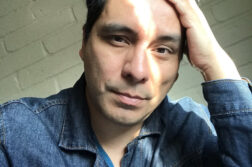SINCE Bob Smith started writing and performing stand-up in 1977, he’s appeared on The Tonight Show, had his own HBO special, and crafted wonderfully funny one-liners. Thanks to his memorable bit on coming out to his family at Thanksgiving, every year I find myself turning to my mother and saying over my turkey-laden plate, “Mom, would you please pass the gravy to a homosexual.” At the microphone, or at the dinner table, the joke never fails to crack folks up.

Getting laughs onstage, however, is certainly no guarantee of coming across funny in print; we’ve all seen far too many comedians whose books offer nothing more than a transcript of their 45-minute stand-up routine. Bob, on the other hand, has successfully adapted his talents to the page, producing two laugh-out-loud books of comic essays in the 90’s (the Lambda-Award winning Openly Bob and the Lambda-Award nominated Way to Go, Smith!) and his critically acclaimed debut novel Selfish & Perverse, published in 2007. His second novel, Remembrance of Things I Forgot, will be released this June by the University of Wisconsin Press. Throughout his writing career, and until recently, Bob has continued to perform on stage, disarming audiences with wry wit and wickedly biting observations that belie his nice-guy persona.
Eddie Sarfaty: So, how has your stand-up influenced your writing?
Bob Smith: Lenny Bruce said writing a good 45-minute stand-up set is equivalent to writing a novel, and I tend to agree with him. One of the most highly regarded British novelists, A. L. Kennedy, also has a background in stand-up. Stand-up comedy prepares you for writing a novel in that every word is weighed and precisely chosen. The difference between the two forms is that a stand-up comic is only trying to make his audience do one thing—laugh—whereas a novelist can be funny one moment and sad the next. I also think stand-up comedy is closer to poetry than to prose. The example I always cite is Lily Tomlin’s joke, “Today I bought a wastepaper basket and brought it home in a paper bag. When I got home, I put the paper bag in the wastepaper basket.” That’s a joke and a poem.
ES: I agree it does have a poetic elegance to it, though I suspect that most poets and other “serious” writers might not be pleased by the comparison. Do you feel comic writers aren’t taken seriously by the literary world?
BS: A little bit. We’re sort of seated at the clowns’ table. But I love comic novels, and long before I thought of writing one, I was reading Thomas Love Peacock’s Nightmare Abbey and Aldous Huxley’s Crome Yellow. It’s a genre I know well, and I think Jane Austen, Mark Twain, and Dickens are as serious about life and human nature as Tolstoy.
ES: Please! Tolstoy was a downer! Mention Anna Karenina from the stage, and you might as well spray the audience with bullets. Who are some of the gay comic writers you admire?
BS: I think modern gay humor started with Oscar Wilde, who begat Saki, Ronald Firbank, Evelyn Waugh, and Joe Orton, continuing on with Isherwood, Armistead Maupin, Stephen McCauley, and David Sedaris. In fact, though I often read highly over-praised comic novels by straight writers, I still feel the best living American comic novelists are Armistead Maupin and Stephen McCauley. Maupin is our eight-volume comic Proust—a master of suspenseful storytelling—and he’s created Anna Madrigal, an immortal comic character. McCauley is a master of the perfectly crafted comic observation while also writing painfully honest commentary on the complexities of love and sexual attraction. His novel The Man of the House is an underrated comic masterpiece that is one the funniest sad stories ever written. It’s almost embarrassing to admit that my favorite gay comic novel, A Glass Of Blessings, was written by a straight woman, Barbara Pym. It’s about a married woman who falls in love with a man who turns out to be gay. Even though it was written in 1958, the gay characters feel contemporary. The young gay beauty has spiky black hair, wears black jeans, and makes his living modeling for knitting catalogues and working in a coffee bar. I’ve read it repeatedly and still love it.
ES: Your first novel was about gay men salmon fishing in Alaska; your forthcoming novel, Remembrance of Things I Forgot, is about time travel; and now you’re at work on a novel set in ancient Greece. What’s with the genre hopping?
BS: I don’t feel there’s any genre shift. They’re all comic novels first, though with elements of different genres. Selfish & Perverse was my attempt to write a comic novel set in an exotic setting, similar to Evelyn Waugh going off to Ethiopia for six months. In order to have more than a cursory knowledge of the state, I visited Alaska twice a year while writing Selfish & Perverse. (And I’m proud to say that every Alaskan who’s read my novel feels I captured it.) Remembrance was a way for me to write about my sister’s suicide, and the novel set in ancient Greece is a way for me to write about theater, which I know something about, and comedy and tragedy, which I also know something about. But the most important thing is that before I started writing, I first thought of a compelling story.
ES: You say Remembrance provided you with a way to write about your sister’s suicide, but it’s also a scathingly funny indictment of the Bush administration. Which subject did you start with, and what inspired you to expand into the other one?
BS: I originally wrote a short story in which the main character time-travels and breaks up with his boyfriend after the boyfriend becomes a gay Republican. A writer friend of mine, Michael Carroll, read it and said, “This should be a novel.” At first I didn’t see it. Then I thought, “If I could go back in time, I’d try to prevent my boyfriend from becoming a Republican and prevent my sister’s suicide,” and the story opened up into a novel.
ES: It must have been empowering for you to create a character who still has a chance to make things right, to look at the wreckage of those eight years and yell, “Do over!”
BS: It’s really about the thirty years of wreckage inflicted by the Republicans since Reagan took office. Like the main character in my novel, I’m also a donor to a lesbian couple and have children. Bush and Cheney have wantonly endangered my children’s future, and yet they’re writing memoirs that rewrite the past. Since they’ll never allow any serious interviewer to confront them with their disastrous record, I think novelists and playwrights need to do it.
ES: Obviously Dick Cheney is the villain
of the novel, and you handily skewer him. But you also provide the occasional glimpse of him that isn’t exactly evil. Was that hard to do?
BS: No. They’re evil, but they’re American villains, where fascists wear baseball caps. I want them to seem human and at times almost dangerously charming. I write in the book, “The worst trait of Americans is our nation’s faith in our almighty sense of humor, ignoring centuries of evidence that if the devil can cite scripture, he can also crack a joke.” One amazing thing I realized while writing the novel was that I could make Cheney do anything evil, and it would be plausible. That’s comic gold, since you can’t invent a character like that.
ES: I know you’re sort of a science nerd, but this is your first foray into science fiction. How does that compare with writing memoir or reality-based fiction? Did you enjoy the freedom to create situations that go beyond what’s possible, or was it daunting to have so few constrictions?
BS: I’m not especially well-read in science fiction, but I do love time-travel stories. Until I started writing my novel, I didn’t grasp how intricately complicated they are. Once you meet yourself, why wouldn’t you remember it? I needed to explain that. And if you change your past, aren’t you also changing the world’s future? I had to cover that also. But this novel is really about family more than anything else. Once the main character travels back in time, it plays out realistically on how you would go about altering your past and how difficult that
might be.
ES: In 2007, you were diagnosed with ALS/Lou Gehrig’s disease. How has that changed your writing?
BS: It’s made me more determined not to waste any reader’s time. All writers should write as if their readers had three to five years to live. If that were the case, I’m guessing we’d have fewer dour, 600-page novels about dysfunctional families. And it’s made me feel freer to mix the funny with the sad without trying to demarcate them, since they clearly share the same genre in life. That’s probably why I love Chekhov and Shakespeare more than ever: they observed no boundaries between the comic and the tragic. My diagnosis sparked a line in Remembrance Of Things I Forgot: “My illness inspired in me one simple goal: you should try to go through life being less selfish than a cancer cell. If you can’t do that, then you’re evil and an asshole.” It’s also reminded me that I have a loving family and amazing friends—although I don’t think a life-threatening illness was required for that nudge when a Post-it note could have done the same thing.
ES: Wow, Bob, you just made cancer funny!
BS: It is—but not as funny as ALS!
Eddie Sarfaty is a standup comedian based in New York and the author of Mental: Funny in the Head (Kensington Press).





